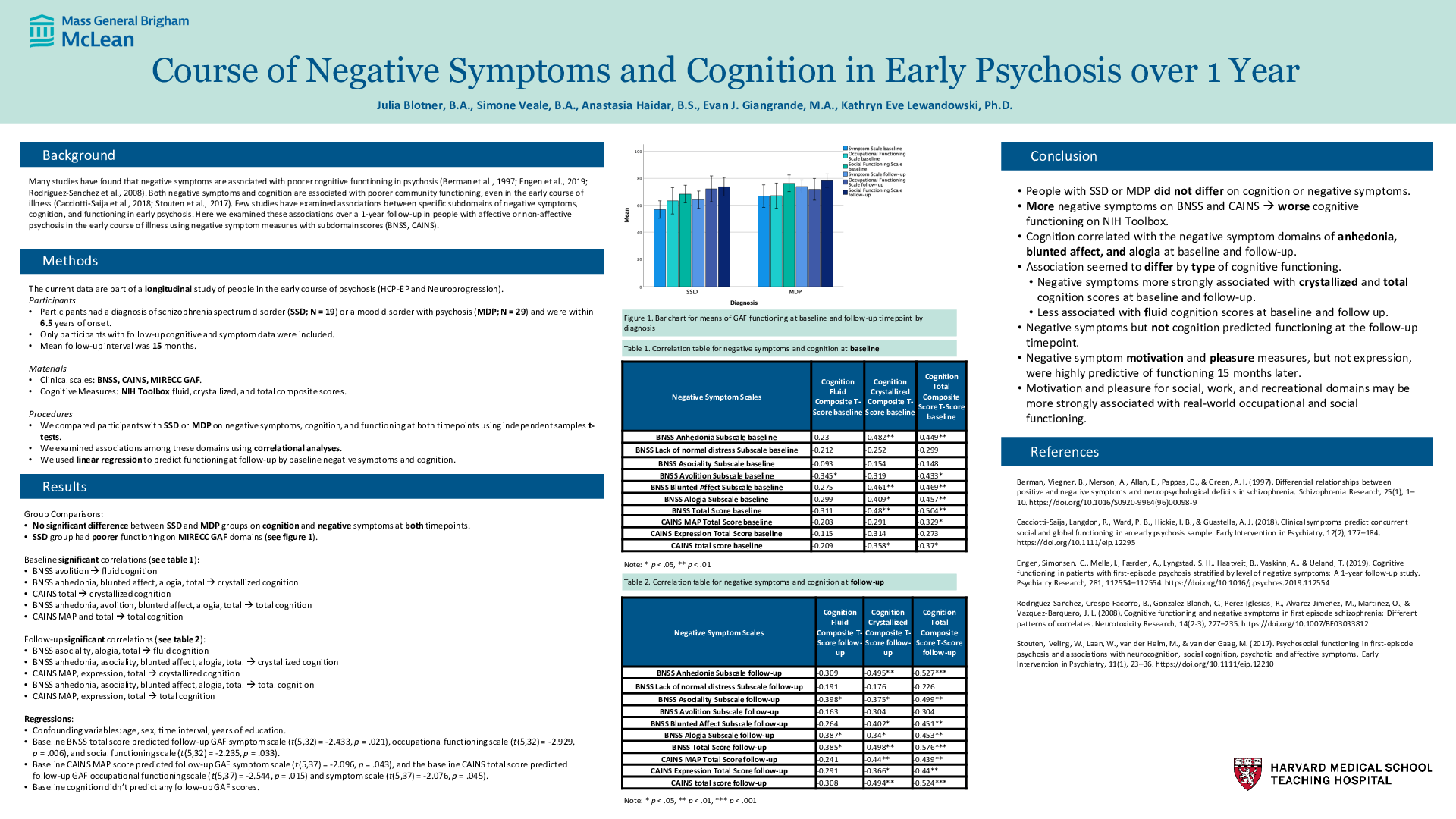Scientific Abstract
Background: Negative symptoms and cognition are associated with poorer functioning in people with psychosis. Few studies have examined associations between specific subdomains of negative symptoms, and cognitive and functional measures in early psychosis. We examined associations between negative symptoms, cognition, and functioning over time in people in the early course of illness, and baseline predictors of community functioning at follow-up.
Methods: Participants with schizophrenia spectrum disorders (SSD; N = 19) or mood disorders with psychosis (MDP; N = 29), ages 18-31, within 6.5 years of onset were assessed at baseline and follow-up (x̄ = 15 months) on negative symptoms, cognition, and functioning. Groups were compared using t-tests, and correlations were used to examine associations among these measures. We used linear regression predicting functioning at follow-up by baseline negative symptoms and cognition.
Results: Groups did not differ on negative symptoms or cognition. BNSS and CAINS total and most subscale scores were modestly to moderately negatively correlated with NIH Toolbox total and crystallized cognition (p<.05-p<.01) but not fluid cognition. BNSS and CAINS scores but not cognition at baseline predicted all MIRECC GAF scores at follow-up, controlling for follow-up duration (t=-2.08 – t=-2.93, p<.05-p<.01).
Conclusions: Negative symptoms, particularly anhedonia, blunted affect, and alogia, were associated with worse crystallized and total cognition at baseline and follow-up, suggesting that negative symptoms may be differentially associated with aspects of cognition. Negative symptoms but not cognition predicted functioning at follow-up. We will examine these associations over multiple timepoints in a larger cohort as data are available.
Search posters

